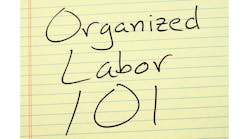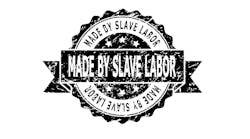COMMENTARY
President Joe Biden and Democrats in Washington promise to give organized labor a big boost through regulatory and legislative action, but that might not be enough as unions struggle with structural changes in the economy, how work is defined and their tarnished reputation.
A good example of the new president’s help is his choice of Boston Mayor Marty Walsh to be Secretary of Labor. Walsh earlier headed the city’s Building and Construction Trades Council and served in the Massachusetts state legislature. He also was a local official in the Laborers’ International Union of North America (of which your writer was once a dues-paying member).
Among the issues Biden is tackling are issuance of COVID-19 Emergency Temporary Standards by the Occupational Safety and Health Administration (OSHA) and strengthening pro-labor representation on the National Labor Relations Board. Both actions were desired by the unions.
With the new president’s support, the Democrat-controlled Congress is expected to pass the Protecting the Right to Organize Act (the PRO Act), adopting California’s AB 5 standard that would virtually eliminate independent contractors from the nation’s workforce. Unions hope this will help them organize professions ranging from truck drivers to computer programmer “gig” workers.
Even with that help, unions have a steep hill to climb to regain their former prominence. Since private workforce union membership in the United States hit a high of 35% in the 1970s, it dropped to about 6.5% in 2019 (while public sector unions continued to grow).
History has worked against them. The erosion of the unions’ traditional industrial base and rise of the tech economy makes it less likely someone can work for one company—or even in one industry—for all of their career. The unions believe the legions of “gig” workers in the new economy are ripe for organizing but as the proponents of AB 5 in California learned, most independent contractors value their independent careers and aren’t shy about saying so.
Another problem is that most people today see little or no benefit in being union members. One reason is that the onerous working conditions and poor pay of the past are largely, if not entirely, a thing of the past. Workers who are well paid and enjoy good working conditions don’t unionize.
Another reason for their decline may be that unions are victims of their own success. Over the years, they have helped lead initiatives changing federal and state laws and regulations to secure safer working conditions and protect workers’ pay. Their nationwide campaign, “Fight for Fifteen,” seeking to secure a $15-an-hour minimum wage was a notable success but has pretty much run its course now that Biden has promised he will make it the federal minimum wage.
Over years some of the largest and most successful unions have alienated both members and potential recruits through behavior that reaches the level of criminality. A United Auto Workers criminal settlement includes six years of independent oversight and repayment of $15 million in kickbacks and bribes collected by its leaders, including two former union presidents. During the investigation, UAW membership dropped 10%.
Other bad publicity was generated by accusations of sexual harassment going unpunished in the top ranks of the Service Employees International Union. DOL recently reported that it completed 223 criminal investigations of unions in FY 2020, resulting in 61 indictments and 69 convictions.
But beyond reforming management to eliminate the taint of criminality, unions must do more than lean on Democrat policymakers to create a more favorable environment. Union leaders recognize this fact and have committed to fitting into the new world of work and modernizing their image and agenda. Whether they can pull it off is another question.




